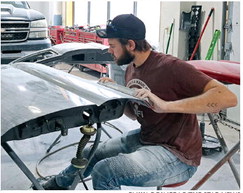What’s behind noises your car might be making


Few things can be as unsettling when behind the wheel as a sudden noise. Noises coming from a car can indicate a host of issues, and that’s one reason why such sounds tend to be ...


Few things can be as unsettling when behind the wheel as a sudden noise. Noises coming from a car can indicate a host of issues, and that’s one reason why such sounds tend to be ...